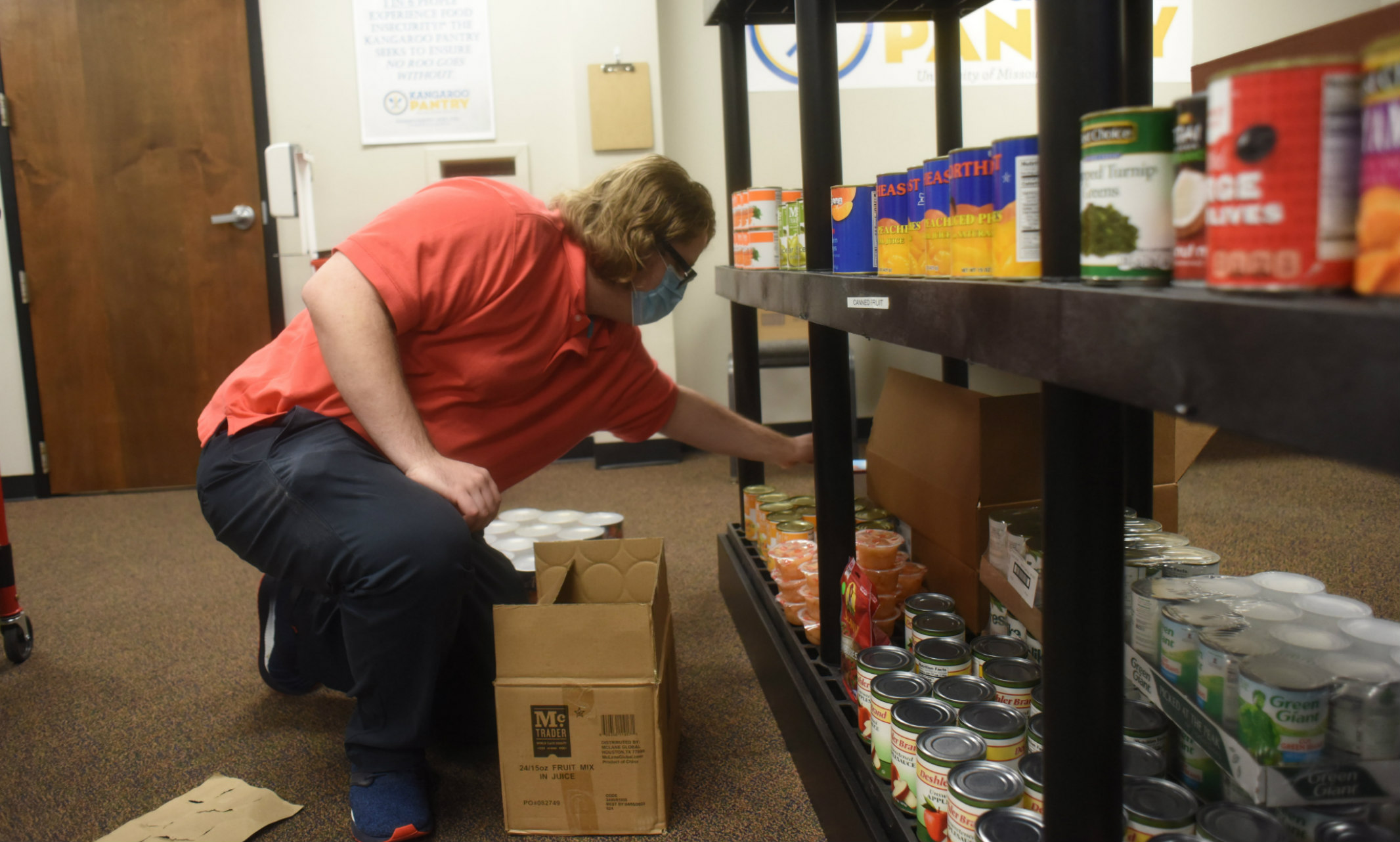Since opening five years ago, Kangaroo Food Pantry has given UMKC students, faculty and staff access to food. Then the pandemic hit, and the demand has more than doubled.
With the growing need, Chancellor Mauli Agrawal formed a food security task force charged with finding gaps and finding solutions. The group studied best practices at other universities, analyzed campus survey data and held student focus groups.
“We made recommendations that are being implemented now and later this semester, but also determined future needs,” said Sue Agrawal, a co-chair of the task force and the chancellor's wife. “We want long-term solutions that make food accessible and convenient for our campus community.”
Based on the task force’s recommendations, this fall the Kangaroo Pantry, located at 4825 Troost Ave., room 103, extended its hours of operations from 6 to 12 hours per week, and expanded its offerings to include fresh produce. It also transitioned the pantry to operate as a full client-choice model so clients can shop as they would at a traditional grocery store.
The task force recommended that Kangaroo Pantry continue online request/pick-up option for students that was instituted during the COVID-19 pandemic in March, and to consider alternate locations for pick-up to make more convenient for students, such as Student Union. In addition, the group recommended establishing satellite pantry locations this fall on the Volker and Health Sciences District campuses.
"Anthony Maly, senior program manager in the Office of Student Involvement, and the Student Affairs team are making good progress and have already implemented several of the recommendations from the task force," said Sheri Gormley, a co-chair of the task force and director of strategic initiatives in the chancellor's office. "To build on this work, the chancellor has recently formed a food security advisory committee to prioritize recommendations from the task force and collaborate closely with our student affairs and student success teams to improve our students’ ability to access food and other basic needs.”
The group’s long-term recommendations:
- Consider moving Volker pantry to more central location on Volker campus.
- Develop permanent location on Health Sciences District campus.
- Increase food offerings.
- Expand operations to 40 hours or more per week.
- Hire a full-time coordinator.
- Institute comprehensive volunteer program to run food pantry.
- Build new community partnerships and resource options for students experiencing food insecurity.
- Create more food drives for the pantry.
- Work in collaboration with UMKC Foundation to develop a comprehensive fundraising campaign with plan for outreach to local and national foundations.
- Create a basic-needs center that would share space with pantry, which could contain school supplies and student resources.
Food security task force members are:
- Sue Agrawal, co-chair, community volunteer
- Obie Austin, co-chair, Student Health administrator
- Sheri Gormley, co-chair, executive director of strategic initiatives, Chancellor’s Office
- Debby Ballard, president of Sprint Foundation and UMKC Trustee
- Stefanie Ellison, professor, associate dean for learning initiatives, School of Medicine
- Sally Ellis Fletcher, associate dean for students, School of Nursing and Health Studies
- Kellee Harris, assistant director, Multicultural Student Affairs
- Kimberly Johnson, director of special projects, Chancellor’s Office
- Ali Korkmaz, director of Institutional Research
- Anthony Maly, senior program manager, Office of Student Involvement
- Uzziel Hernandez Pecina, assistant teaching professor, School of Education
- Gabriel Rop, director of programs and operations, Reconciliation Services
- Leslie Tracy, residence hall manager, Residential Life
- Katie Wiegand, graduate student, School of Social Work

